Siqin Li
Enhancing Human Experience in Human-Agent Collaboration: A Human-Centered Modeling Approach Based on Positive Human Gain
Jan 28, 2024



Abstract:Existing game AI research mainly focuses on enhancing agents' abilities to win games, but this does not inherently make humans have a better experience when collaborating with these agents. For example, agents may dominate the collaboration and exhibit unintended or detrimental behaviors, leading to poor experiences for their human partners. In other words, most game AI agents are modeled in a "self-centered" manner. In this paper, we propose a "human-centered" modeling scheme for collaborative agents that aims to enhance the experience of humans. Specifically, we model the experience of humans as the goals they expect to achieve during the task. We expect that agents should learn to enhance the extent to which humans achieve these goals while maintaining agents' original abilities (e.g., winning games). To achieve this, we propose the Reinforcement Learning from Human Gain (RLHG) approach. The RLHG approach introduces a "baseline", which corresponds to the extent to which humans primitively achieve their goals, and encourages agents to learn behaviors that can effectively enhance humans in achieving their goals better. We evaluate the RLHG agent in the popular Multi-player Online Battle Arena (MOBA) game, Honor of Kings, by conducting real-world human-agent tests. Both objective performance and subjective preference results show that the RLHG agent provides participants better gaming experience.
Towards Effective and Interpretable Human-Agent Collaboration in MOBA Games: A Communication Perspective
Apr 23, 2023

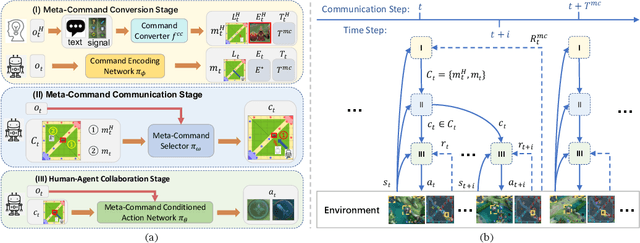

Abstract:MOBA games, e.g., Dota2 and Honor of Kings, have been actively used as the testbed for the recent AI research on games, and various AI systems have been developed at the human level so far. However, these AI systems mainly focus on how to compete with humans, less on exploring how to collaborate with humans. To this end, this paper makes the first attempt to investigate human-agent collaboration in MOBA games. In this paper, we propose to enable humans and agents to collaborate through explicit communication by designing an efficient and interpretable Meta-Command Communication-based framework, dubbed MCC, for accomplishing effective human-agent collaboration in MOBA games. The MCC framework consists of two pivotal modules: 1) an interpretable communication protocol, i.e., the Meta-Command, to bridge the communication gap between humans and agents; 2) a meta-command value estimator, i.e., the Meta-Command Selector, to select a valuable meta-command for each agent to achieve effective human-agent collaboration. Experimental results in Honor of Kings demonstrate that MCC agents can collaborate reasonably well with human teammates and even generalize to collaborate with different levels and numbers of human teammates. Videos are available at https://sites.google.com/view/mcc-demo.
Honor of Kings Arena: an Environment for Generalization in Competitive Reinforcement Learning
Oct 09, 2022
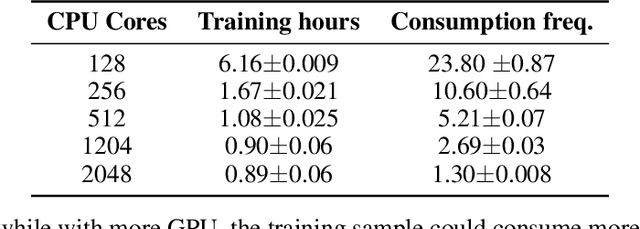
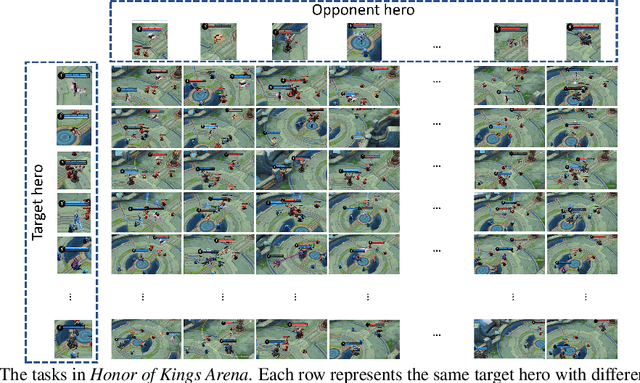
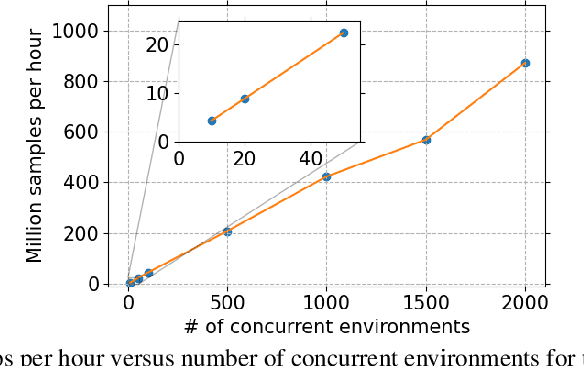
Abstract:This paper introduces Honor of Kings Arena, a reinforcement learning (RL) environment based on Honor of Kings, one of the world's most popular games at present. Compared to other environments studied in most previous work, ours presents new generalization challenges for competitive reinforcement learning. It is a multi-agent problem with one agent competing against its opponent; and it requires the generalization ability as it has diverse targets to control and diverse opponents to compete with. We describe the observation, action, and reward specifications for the Honor of Kings domain and provide an open-source Python-based interface for communicating with the game engine. We provide twenty target heroes with a variety of tasks in Honor of Kings Arena and present initial baseline results for RL-based methods with feasible computing resources. Finally, we showcase the generalization challenges imposed by Honor of Kings Arena and possible remedies to the challenges. All of the software, including the environment-class, are publicly available at https://github.com/tencent-ailab/hok_env . The documentation is available at https://aiarena.tencent.com/hok/doc/ .
Supervised Learning Achieves Human-Level Performance in MOBA Games: A Case Study of Honor of Kings
Nov 25, 2020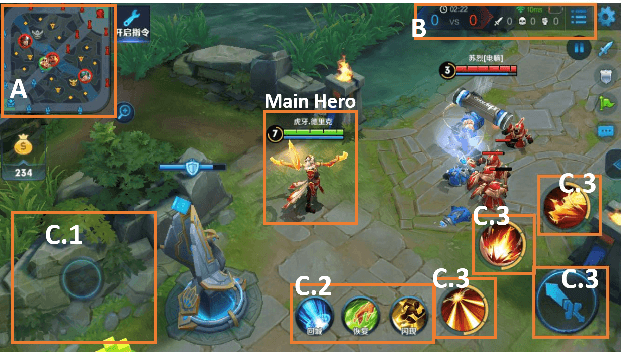
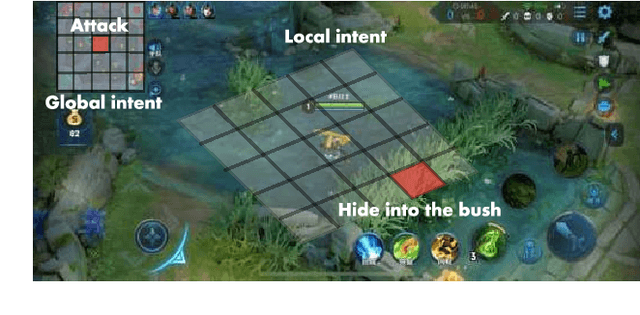

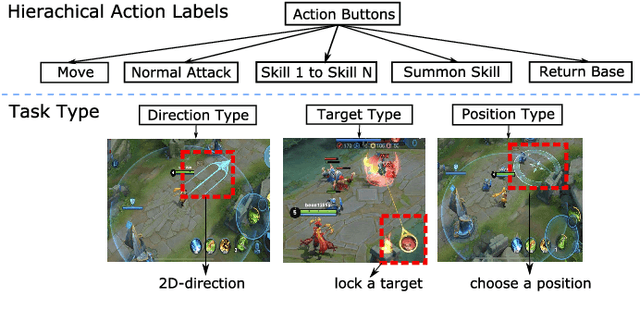
Abstract:We present JueWu-SL, the first supervised-learning-based artificial intelligence (AI) program that achieves human-level performance in playing multiplayer online battle arena (MOBA) games. Unlike prior attempts, we integrate the macro-strategy and the micromanagement of MOBA-game-playing into neural networks in a supervised and end-to-end manner. Tested on Honor of Kings, the most popular MOBA at present, our AI performs competitively at the level of High King players in standard 5v5 games.
 Add to Chrome
Add to Chrome Add to Firefox
Add to Firefox Add to Edge
Add to Edge